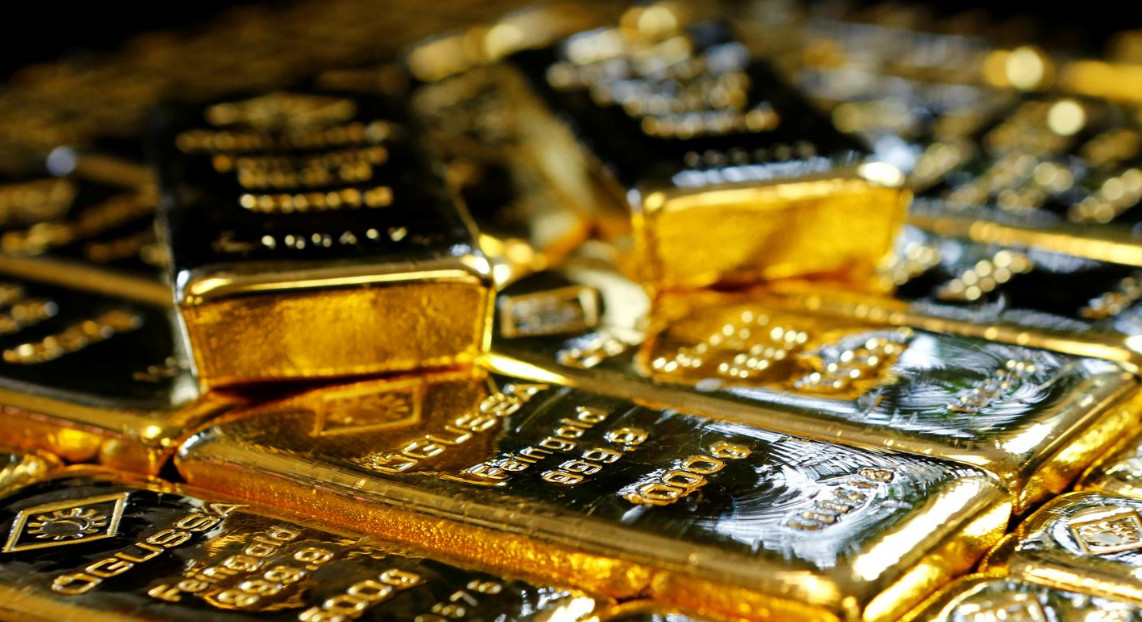Black swans and gold bars

Gold has been one of the best performing assets this year - the bull market in the precious metal is now in its fourth year. The current environment of low interest rates, QE to infinity and debasement of global currencies are the perfect combination for gold, so we intend to keep a reasonable allocation.
Gold mining stocks are also performing well after years of underperformance. The industry used to struggle with mismanagement: little attention paid to cost structures, huge capital spending and value-destroying acquisitions. Now, however, we are seeing much more disciplined capital allocation; a very limited number of new mines are being built every year (mine production in 2019 fell for the first time since 2008) and a big focus on costs has resulted in very low-cost operations, higher returns, solid cash flow generation and stronger balance sheets. There has been a lot of consolidation in the industry, and most gold miners are now run by competent management teams, who should deliver decent returns even if gold prices don’t rise. Well run businesses, gold prices north of $1,700/oz and reasonable valuations makes owning gold miners a decent long-term investment, in our opinion.
Will the gold price remain at these levels? Our crystal ball is, as ever, very foggy in predicting where prices are headed. Throughout history, however, gold has proved to be the most effective hedge against extreme market outcomes. As an asset that sits outside the financial system, gold tends to provide protection against a complete loss of credibility of central banks, and that scenario does seem to be getting more likely. That would suggest the possibility of higher prices still.
Most market participants, however, believe that gold will perform well only if we experience a (hyper)inflationary shock. We would argue that gold has historically held up well also in deflationary environments, but it is useful nevertheless to explore whether a regime change from deflation to inflation is likely. Policymakers around the world are increasingly risking destabilizing the global monetary system, as they fight against the covid-19 pandemic. Most countries have unfortunately entered the crisis with too much debt, and given there is little political appetite for the bankruptcies that could rid the system of that debt, the only other option to reduce it is to inflate it away. We are thus seeing helicopter money everywhere, as unprecedented fiscal stimulus and huge deficits are being financed by central banks with “unlimited” QE money printing, and central bank assets are exploding.
History shows that the direct monetization of government debt eventually leads to runaway inflation and potentially unlimited debasement of paper currencies’ value. Whilst fiat money deteriorates in quality as it is produced in unlimited amounts, gold tends to hold its value over time. Many point out that QE did not result in inflation a decade ago, so why should it now? The difference is that all the liquidity largely remained trapped in the banking system and did not flow into the real economy. This time, the biggest fiscal and monetary stimulus in history is being targeted towards lower income individuals and small businesses. These tend to exhibit a much higher velocity of money than large institutions, so that should have a much stronger inflationary impulse. The disruption and deglobalization of supply chains might also add to the inflationary pressures.
Ultimately, most asset classes are pricing in a deflationary shock, and few investors and capital allocators are worried about inflation today, but we believe it prudent to maintain a hedge.
Across the absolute return strategy we have exposure to physical gold and two gold mining shares (Newcrest Mining and Barrick Gold); the highest allocation to the sector we’ve ever had. So far, these assets have performed well and have provided robustness to the funds.
-- Contact us at [email protected]
-

Integration of GIS and BIM can drive development of smart city Dr. Winnie Tang
The China Association for Geospatial Industry and Sciences (“the CAGIS”) released the Top Ten Highlights of China's Geographic Information Industry in 2023, which provides much inspiration. The
-

Equip young people for the future Dr. Winnie Tang
In late February, the inaugural flight of an air taxi from Shenzhen Shekou Cruise Homeport to Zhuhai Jiuzhou Port took only 20 minutes with an estimated one-way ticket price of 200 to 300 yuan per
-

Are we raising a generation of leaders, or of followers? Brian YS Wong
The essence of education is defined not by the facts it imparts, but the potential knowledge it inspires students to individually pursue on their own. Put it this way – the ideal form of education
-

The urgent need for reforms to sex education in Hong Kong Sharon Chau
Nearly one in every four university students (23%) in Hong Kong has been sexually harassed, according to a 2019 report published by the Equal Opportunities Commission (EOC). A 2019 study found that
-

STEAM should be linked to real life Dr. Winnie Tang
In the 2017 Policy Address, STEM (science, technology, engineering and mathematics) education was proposed as one of the eight major directions to promote I&T development. Since then, funding has
-
首屆「中華文化節」六月開幕 感受中華傳統文化多元魅力
-
呈獻精彩絕倫的音樂盛會
-
Russia’s nightmare – loss of Far East
-
非凡彩寶之旅 Winston Candy & Winston Kaleidoscope系列
-
My Brief Remarks – at the HKS China Conference
-
The perils of self-censorship
-
中華文化節2024系列~八台戲曲亮相中華文化節 新編粤劇《大鼻子情聖》打響頭鑼
-
DIOR MEN Fall 2024~Effortless Chic流麗衣櫥
-
伊藤詩織:紀錄片是改變的一部分
-
WALTER ALBINI 意大利時裝的無名英雄















